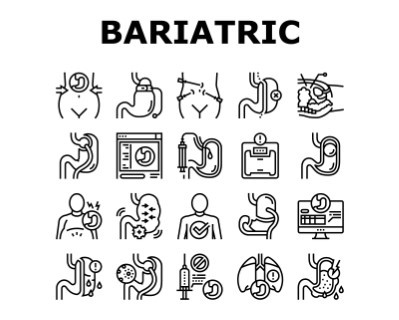Revisional Bariatric Surgery
- Purpose: Corrects or improves the outcomes of previous bariatric surgery.
- Procedure: Varies depending on the initial surgery and required adjustments.
-
Note: The information provided here applies to elective Revisional Bariatric Surgery procedures under standard conditions. However, specifics may vary depending on individual patient factors, such as the reason for revision, the type of previous bariatric surgery, patient tolerance, or any complications that might arise during or after the surgery. The patient’s overall health, the complexity of the revision, and the need for additional interventions can also influence the surgery and recovery process.
Inpatient/Outpatient
Revisional Bariatric Surgery is typically performed as an inpatient procedure due to its complexity. This type of surgery is often more complicated than the initial bariatric procedure, requiring patients to be admitted to the hospital for close monitoring before, during, and after the surgery. Most patients will require a hospital stay to ensure proper recovery and to monitor for any potential complications, such as bleeding, infection, or issues related to the initial bariatric surgery.Hospital Stay Duration
Patients undergoing Revisional Bariatric Surgery usually stay in the hospital for 2 to 4 days, depending on the complexity of the surgery and the patient’s overall health. The initial post-operative period involves close monitoring in a specialized care unit to observe for any complications and to manage pain and recovery. The length of stay may be extended if the patient has other underlying conditions or if complications arise during recovery.Type of Anesthesia
The procedure is performed under general anesthesia, meaning the patient will be fully unconscious during the surgery. General anesthesia is necessary to keep the patient comfortable and still, allowing the surgical team to perform the procedure safely and effectively.Travel After Procedure
Patients are generally advised to avoid travel, particularly long-distance or air travel, for at least 2 to 4 weeks after Revisional Bariatric Surgery. This period allows time for initial recovery and healing. The healthcare provider will provide specific recommendations regarding travel and activity levels based on the patient’s recovery progress and the complexity of the revision.Pre-procedure Preparation
Preparation for Revisional Bariatric Surgery typically involves several steps, including dietary adjustments, weight loss, and lifestyle changes to optimize health before surgery. Patients may be instructed to follow a liquid or low-calorie diet for a few weeks before surgery to reduce the size of the liver and improve surgical outcomes. Patients may also need to stop taking certain medications, particularly blood thinners, as directed by their healthcare provider to minimize the risk of bleeding during surgery. A comprehensive pre-operative assessment, including blood tests, imaging studies, and possibly an evaluation of the initial bariatric procedure, is conducted to plan the revision surgery.Procedure Duration
The duration of Revisional Bariatric Surgery varies depending on the type of revision being performed and the complexity of the case. The procedure can take anywhere from 2 to 4 hours or more. The surgery may involve correcting issues from the initial bariatric procedure, converting one type of bariatric surgery to another, or addressing complications such as weight regain, nutritional deficiencies, or mechanical problems with the original surgery.Recovery Time
Recovery from Revisional Bariatric Surgery can take several weeks to a few months, depending on the complexity of the revision and the patient’s overall health. Most patients are encouraged to engage in light activities, such as walking, soon after discharge, but full recovery, including a return to work and more strenuous activities, may take up to 6 to 8 weeks. Patients will need to follow a special post-procedure diet, starting with liquids and gradually progressing to pureed and then solid foods. Regular follow-up appointments are essential for monitoring recovery, weight loss, and addressing any nutritional needs or complications.Estimated Cost
The cost of Revisional Bariatric Surgery can vary widely depending on the hospital, geographic location, and the complexity of the revision. Revisional procedures are often more expensive than initial bariatric surgeries due to their complexity. For accurate cost information, patients should contact their healthcare provider or hospital directly.Post-procedure Care
Post-procedure care for Revisional Bariatric Surgery involves significant focus on diet, lifestyle changes, and ongoing monitoring. Patients will need to follow a structured eating plan, including taking vitamin and mineral supplements to prevent deficiencies. Regular follow-up appointments are crucial to monitor weight loss, nutritional status, and any potential complications specific to the revision. Patients will also receive guidance on incorporating physical activity into their routine to support long-term weight loss and health. Psychological support or counseling may be recommended to help patients adjust to the changes following surgery and to address any emotional or behavioral issues related to eating and weight loss.
_20240708122007087317__0.webp)
